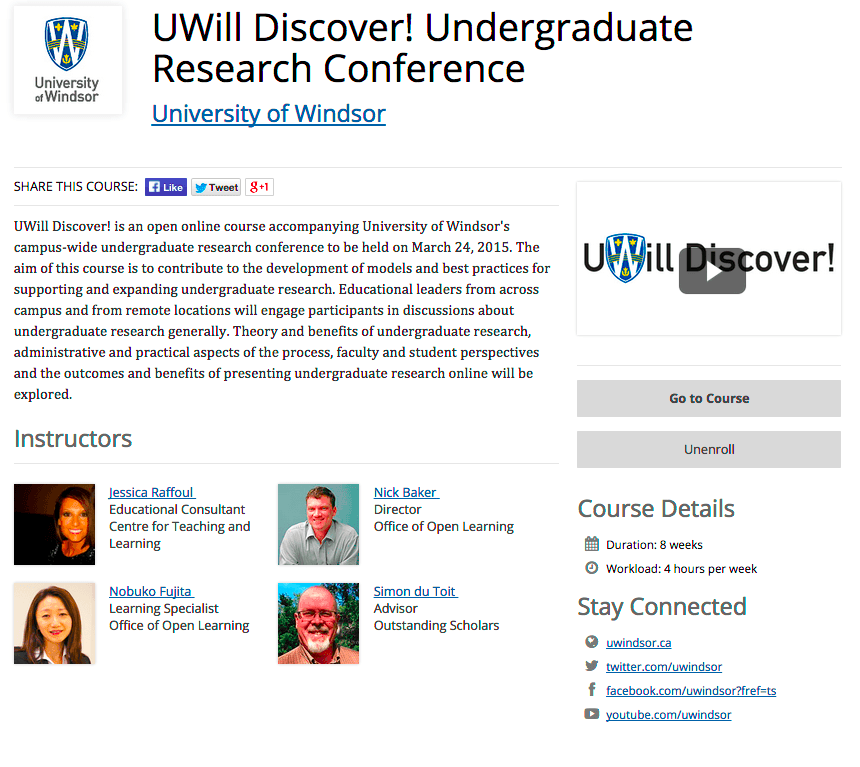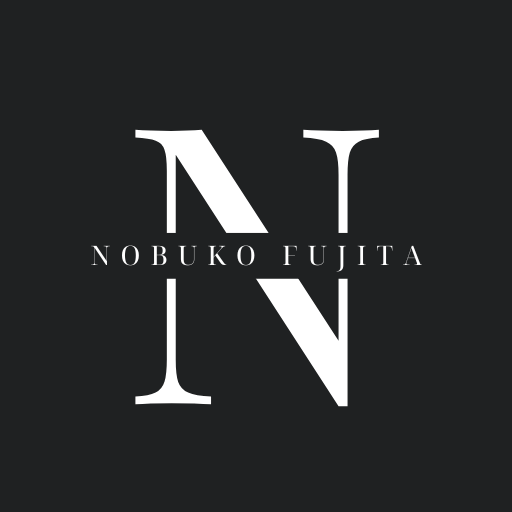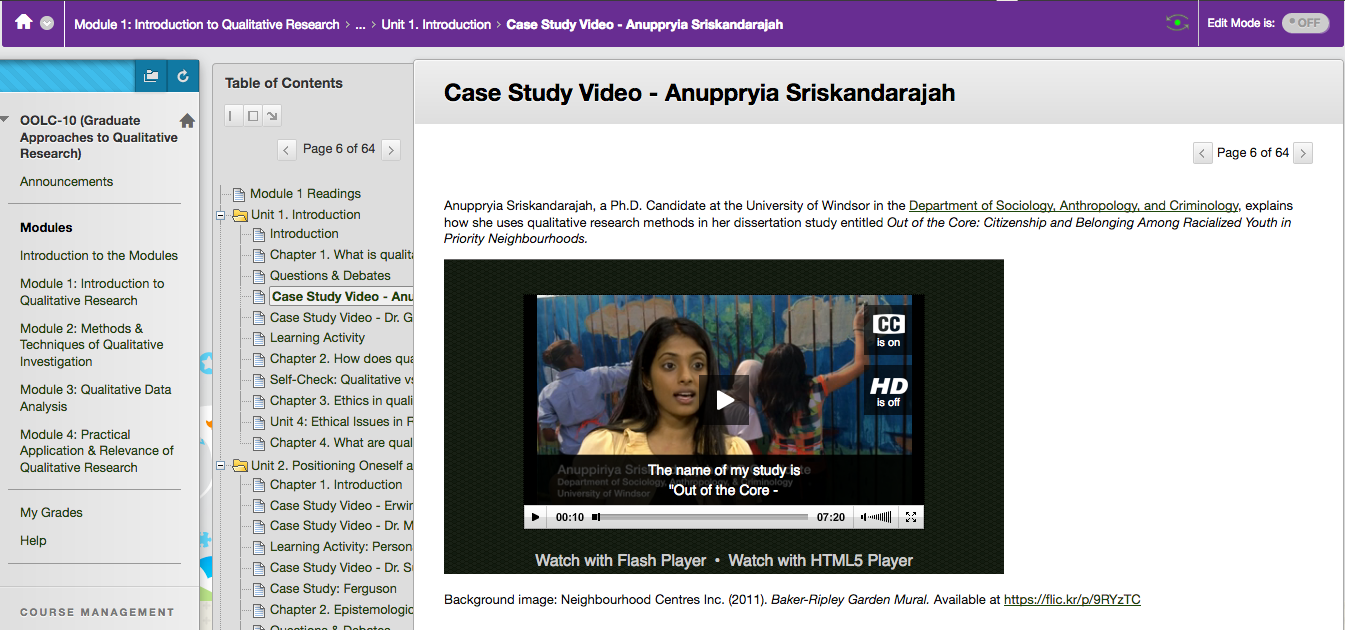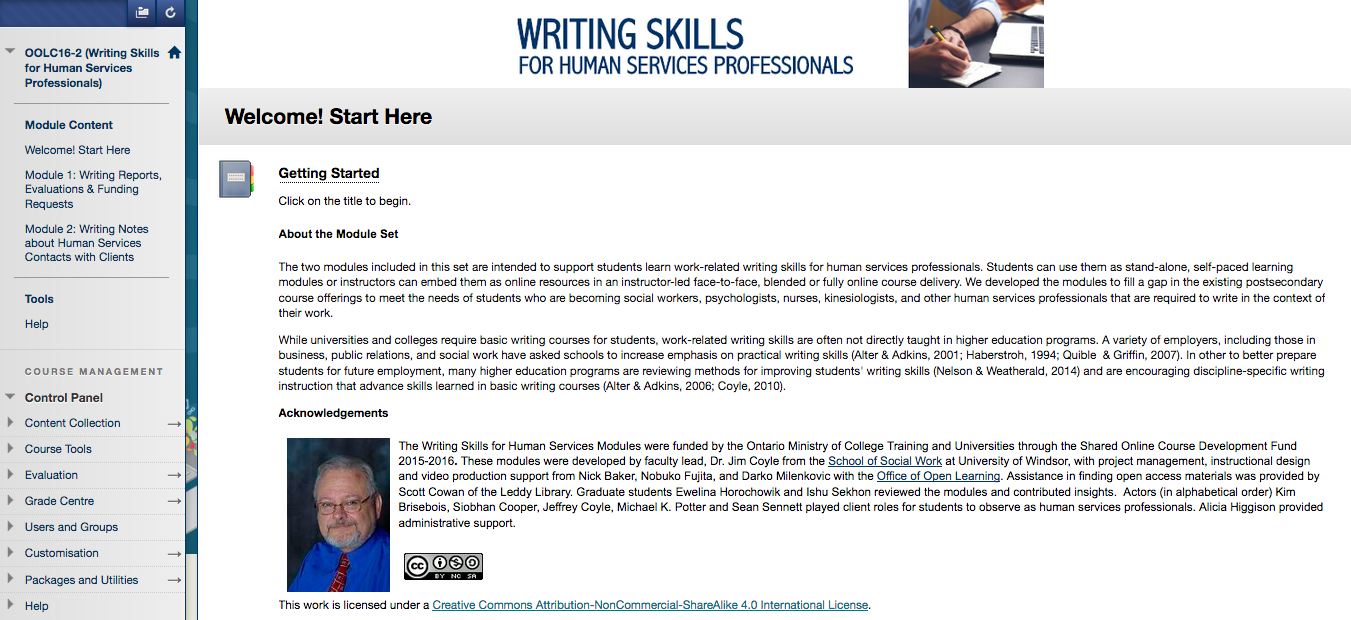I work in the Office of Open Learning, so it is not too surprising that we are advocates of open educational resources (OER).
In the last 3 years, I have been involved in creating a variety of “open” things: our very first MOOC, two CC-BY-NC-SA licensed module sets, and now I am excited to be collaborating with faculty on the design of a new open etextbook!

I have blogged about the MOOC (see above; website ) before, so I will focus on the open modules in this post.
Graduate Approaches to Qualitative Research
The first set of modules, Graduate Approaches to Qualitative Research (“Grad Modules”) were developed by faculty leads Dr. Glynis George , Dr. Dusty Johnstone, and Dr. Patricia Weir and I provided instructional design support. The Grad Modules are a set of four modules intended to support instruction of graduate students in the general area of qualitative research:
An introduction to qualitative research
Methods and techniques of qualitative investigation
Qualitative data analysis
Practical application and relevance of qualitative research
The modules were developed with funding from the Ontario Ministry of College Training and Universities (now Ministry of Advanced Education and Skills Development) and can be used as stand along learning modules, or as components in a graduate course. It ended up being quite a complex, nuanced project as we were designing open content at the graduate level. The faculty leads wanted to create high-quality video case studies, engaging learning activities, formative assessments, and to involve student partners in the content development and evaluation of the material.
I coordinated a lot of studio video production with our student multimedia associates, Darko and Brian, to develop these modules. We produced a lot of green screen video interviews with researchers who use qualitative methods, including graduate students and professors from different disciplines–Anthropology, Sociology, Education, Women’s Studies, Human Kinetics, Social Work, etc.– at the University of Windsor.
For learning activities, we emphasized reflection and self-testing. As the modules could be used as standalone resources, we wanted to provide as much feedback for learning as possible. We provided exemplars for written assignments and designed self-test quizzes where students would receive automated feedback on their submissions. For example, when a student submitted a response, they would get feedback from an expert on the important concepts that they expected students to identify and elaborate.
Student partners also contributed to the content development and review process, gathering open content such as articles from open access journals, images in the public domain or CC-licensed, music, etc. Pretty neat.
Writing Skills for Human Services Professionals
The second OER module set that I helped develop is Writing Skills for Human Services Professionals, led by Dr. Jim Coyle in the School of Social Work at University of Windsor. Like the Grad Modules, students can use the two modules in this set as stand-alone, self-paced learning modules, or instructors can embed them as online resources in a face-to-face, blended or fully online course delivery. These modules are intended to support students learn work-related writing skills for human services professionals. Students can use them as stand-alone, self-paced learning modules or instructors can embed them as online resources in an instructor-led face-to-face, blended or fully online course delivery. We developed the modules to fill a gap in the existing postsecondary course offerings to meet the needs of students who are becoming social workers, psychologists, nurses, kinesiologists, and other human services professionals that are required to write in the context of their work
What I am most proud of in these modules are the unique, OER video resources that we created with faculty and student actors.
Two of these involved video shoots where we had the actors role play a family therapy session with a social worker and watched the dynamics of the “Baker Family” unfold in front of the green screen in the studio. Michael K. Potter is Gustavo Baker, the family patriach. Sean Sennett is Dan Baker, the college-aged son. Siobhan Cooper is Megan Baker, the teenage daughter.
Family Session 1 Loading video, please wait…
Family Session 2 Loading video, please wait…
Students watched these videos, took notes as an observer, analyzed their notes, and wrote it up in a report. When they uploaded their assignment, they got feedback of what the Instructor expected.
Several other videos extended this idea and showed a screencast of the students’ written assignment and the instructor giving the feedback to the students in person, over several iterations/drafts of the writing assignment. These videos were shot in my own office.
Ewelina 1 Loading video, please wait…
Ishu Loading video, please wait…
eTextbook
I am currently working with Dr. Rajeeva Sinha of the Odette School of Business on an open etextbook. More on that later!



Leave a Reply